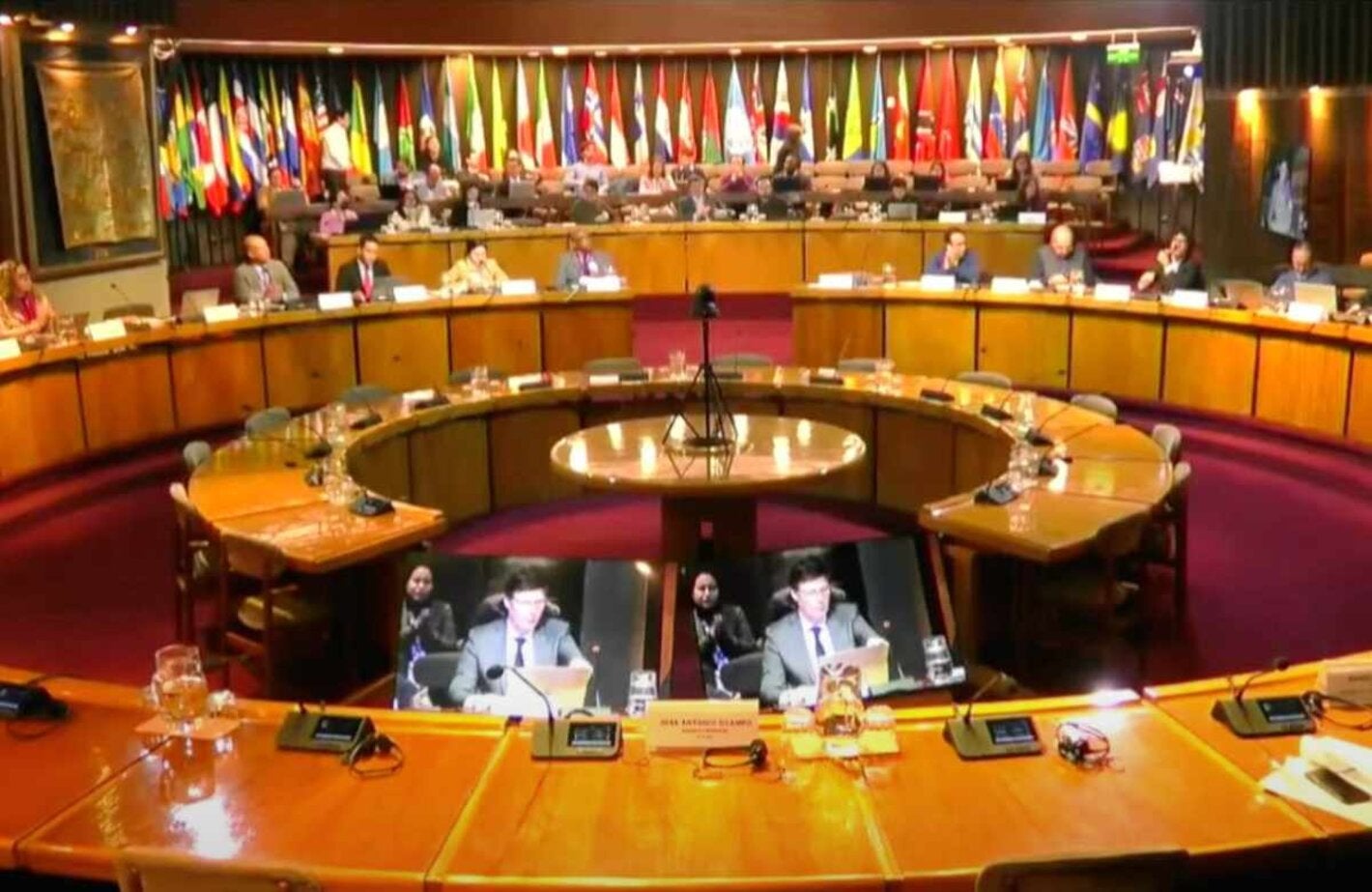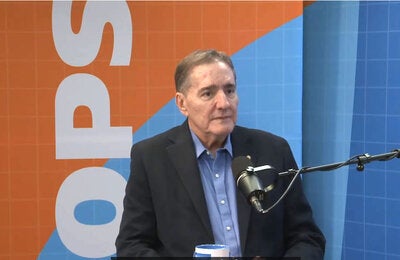
Washington DC, May 10 2024 (PAHO)- The Pan American Health Organization (PAHO) emphasized the need to increase spending on primary health care (PHC) during a session on "Public Spending and Priorities for Sustainable Development," which was held at the XXXVI Regional Seminar on Fiscal Policy, from May 6 to 8 in Santiago, Chile, organized by the Executive Secretariat of the Economic Commission for Latin America and the Caribbean (ECLAC).
"Although there was a sustained increase in public health spending in Latin America and the Caribbean, reaching 4.4% of GDP (2000-2021), we are still far from the 6% recommended by PAHO and Member States," said James Fitzgerald, Director, PAHO´s Health Systems and Services Department, in his presentation on "Health and Fiscal Policy in Latin America and the Caribbean post-COVID-19."
This recommendation aims to improve the responsiveness and resilience of health systems, especially after the COVID-19 pandemic, which has exposed systemic deficiencies and the need for greater investment in the health sector. According to Fitzgerald, the level of financing in the first level of health care in Latin America and the Caribbean is insufficient and does not reach the recommended parameter of 30% of public spending.
This reflects gaps in access and coverage of health services, especially in territories and populations in vulnerable situations. "Investment in primary health care is the most cost-effective in terms of outcomes because up to 80 percent of health problems can be resolved at this level," said Fitzgerald. "A greater fiscal priority, aimed at strengthening health systems based on PHC, and prioritizing the first level of care is the way to guarantee the right to health for all," he added.
The XXXVI Regional Seminar on Fiscal Policy, which has brought together authorities, specialists, civil society, and academia for 36 years to discuss the fiscal policy challenges faced by the region's countries, concluded by emphasizing that the major transformations needed in the Latin America and the Caribbean´s development models to achieve more productive, inclusive, and sustainable societies require an expansion of fiscal space to eliminate inequalities and ensure the sustainability of public finances.



